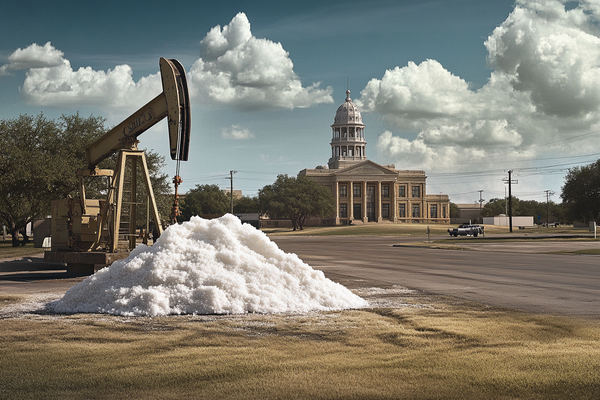Aris is interesting and important not so much because of the legal analysis set out by the El Paso Court of Appeals regarding any substantive laws, but because it comes on the heels of Basic Energy Services, L.P. v. PPC Energy LLP. 2024 Tex. App. LEXIS 9015 (Tex. App. — El Paso Dec. 27, 2024, pet. filed). In Basic, the El Paso Court of Appeals held that injecting oil and gas waste water into an underground stratum constitutes “production, transportation and storage of oil and gas” such that a commercial disposal well operator could be held strictly liable for watering out for committing “waste” according to Section 85.045 of the Texas Natural Resources Code when its injection of oil and gas waste water lead to a nearby operator’s well to be watered out.
The primary issue in the permissive interlocutory appeal in Aris is when an oil and gas operator’s claim arises for purposes of the applicable statute of limitations when its wells are watered out by a wastewater injection company’s injection activities.
In 2018, Stateline’s (Plaintiff) predecessors acquired mineral interest in Eddy County, New Mexico located near Aris’s wastewater disposal wells. In 2019 Stateline’s predecessors investigated potential effects of wastewater on the mineral interest at issue while preparing a drilling program. In 2021 Stateline drilled four wells that did not experience any interference from injected wastewater. Also in 2021, Aris substantially increased its injection activities in Loving County. In early 2022 Stateline began drilling a second set of wells and encountered significant pressurized water during the drilling process. In October of 2022, several of Stateline’s wells were experiencing abnormal water production, which Stateline claimed diminished the value of its interest by $180 million.
At the trial court, Aris moved for summary judgment arguing that the statute of limitations began to run on Stateline’s claims when it knew of a “concrete risk of harm” which Aris argued was more than two years before it filed suit so Stateline’s claim were barred by the applicable two (2) year statute of limitations. The trial court denied Aris’s motion for summary judgment but permitted Aris’s interlocutory appeal as to whether Stateline’s claims had accrued based on a “concrete risk of harm.” According to Aris, Stateline was aware of a “concrete risk of harm” to its oil and gas wells from Aris’s injected water no later than January of 2021 when Stateline’s predecessor learned from a third party that Aris’s injected water affected its drilling operations.
The court of appeals noted and the parties agreed that the “concrete risk of harm” standard had never been applied in the context of injury to land. The court analyzed the “concrete risk of harm” standard in the context of federal standing law and Texas professional malpractice law where such a standard is typically applied. With regard to the federal standing “concrete and particularized standard” the court reasoned that Aris did not develop the issue of whether any pertinent risk of harm to Stateline’s property entailed a degree of risk sufficient to be “concrete.” In the context of Texas professional malpractice law, the court reasoned that Aris did not identify a particular event or explain why a particular event would be “concrete and specific” enough to trigger the accrual of Stateline’s claims under the discovery rule. The court ultimately held that the date that the statute of limitations accrued was a fact issue and denied Aris’s petition for interlocutory appeal.
When Legal Precedent Meets Operational Reality
This case marks another dispute between water injectors and gas producers. Produced water is a natural byproduct of oil and gas production. As of March of 2024 over 11 million of barrels of produced water were produced in the Permian Basin every day. Most of that water is injected right back into underground stratum.
Dispute between oil and gas producers and produced water injectors will likely to continue to intensify in the coming years as the law continues to develop and the amount of produced water encountered in exploration activities continues to increase. In Basic the El Paso Court of Appeals cleared a path for produced water injectors to be sued for “waste” under Section 85.045 of the Texas Natural Resources Code. The damage in that case totaled roughly $13 million.
In Aris, Stateline’s claimed damages are much more substantial ($180 million). One can imagine scenarios where, through creative damages calculations, $180 million could be a modest amount depending on the oil and gas interest affected by water injection.
The Collision Course No One Wants to Navigate
One thing is certain, produced water is an industry wide issue that requires an industry wide solution. Obviously, we should avoid wasting the valuable natural resources underlying the surface of the state, but we also have to do something with the produced water. Potential solutions for the “produced water problem” might come in the form of finding ways to transport the water to areas of the state where there will not be an effect oil and gas production and injecting it there or finding a way to commercialize the cleaning and reuse of produced water for agricultural or other commercial uses.
Why Government Intervention May Be the Industry's Only Exit Strategy
The state and federal government has always taken an interest in subsidizing the research and development for natural resources. It seems to me that a substantial investment to find practical long-term solutions and uses for produced water is necessary especially given the major water challenges in West Texas and the Western United States more broadly. Until a solution is reached, we will continue to see unavoidable fights between oil and gas producers and produced water injectors.











